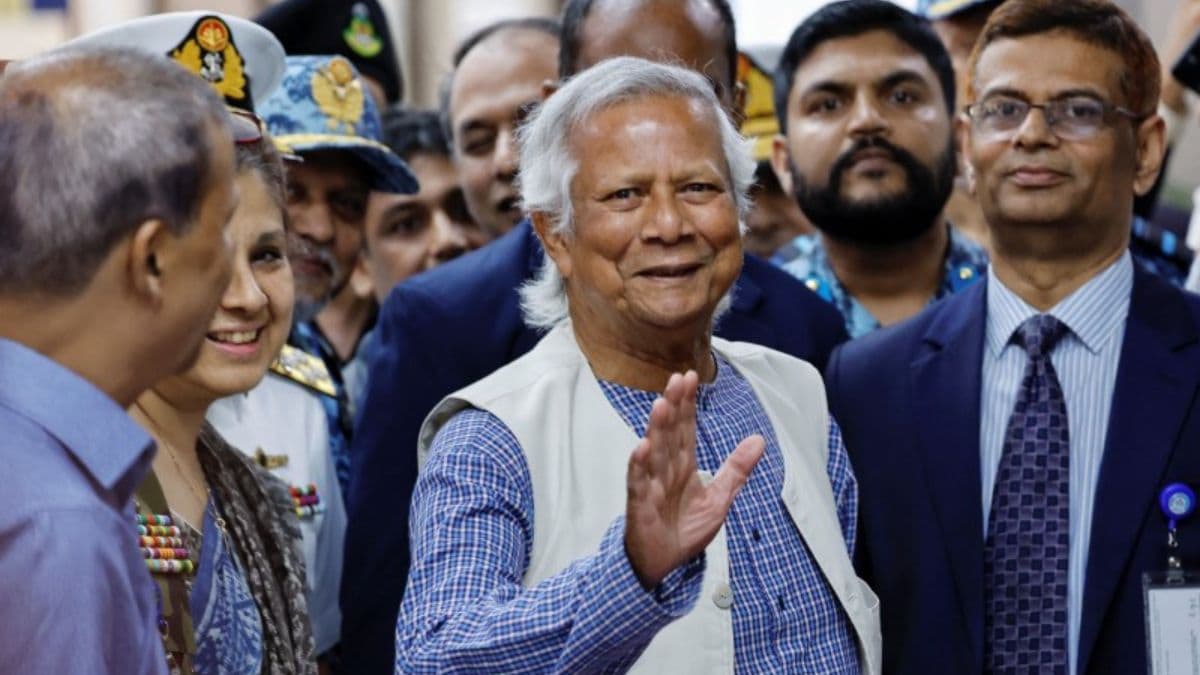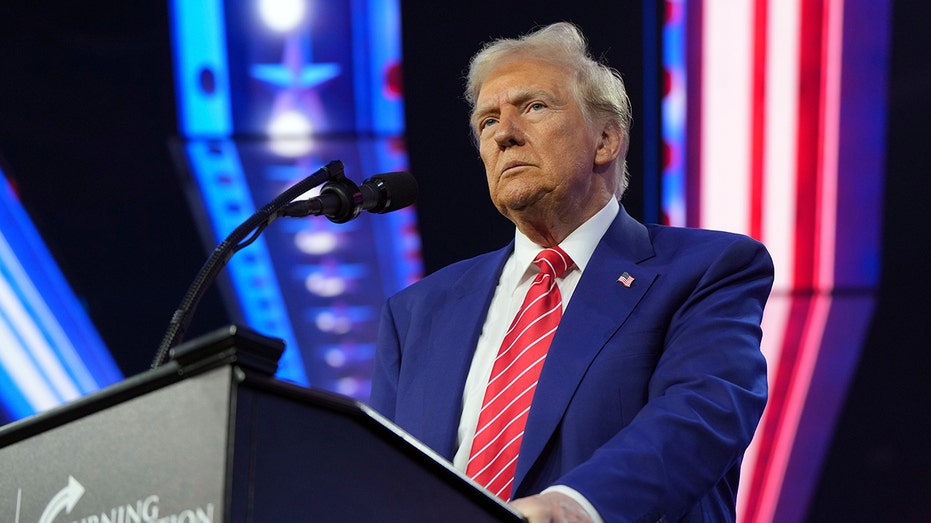
Recent developments in Bangladesh highlight the alarming resurgence of Jamaat-e-Islami’s influence under the interim government led by Muhammad Yunus. The arrest of Hindu monk Chinmoy Krishna Das on sedition charges—following accusations of disrespecting the national flag during a peaceful rally—has amplified fears of systemic bias against minorities. This incident is part of a broader pattern of persecution, with reports of over 200 targeted attacks on Hindu homes and temples in recent months.
Jamaat’s growing control over state mechanisms appears evident in the Yunus administration’s leniency toward extremist factions while silencing minority voices. Das’s arrest, paired with violent crackdowns on protests demanding his release, underscores the judiciary’s troubling bias. The broader implications are dire for Bangladesh’s democracy, with minorities caught in the crossfire of political expediency and radical Islamist ideologies.

This trajectory has not only fuelled domestic unrest but also strained Bangladesh’s international reputation, with global human rights organisations calling for accountability. The rise of Jamaat signals a dangerous shift that threatens both the nation’s secular fabric and the safety of its minority communities. Jamaat’s Influence in the Post-Hasina Era In recent years, Jamaat-e-Islami has managed to regain a foothold in Bangladesh’s political landscape.
The group’s role in removing Sheikh Hasina from power and its integration into the interim government highlight its growing influence. Jamaat’s connections with the Muslim Brotherhood and its leaders’ education in Egypt and Turkey have further strengthened its ideological and political network. Jamaat’s student wing, Islamic Chhatra Shibir (ICS), has been instrumental in mobilising support and orchestrating political movements.
ICS’s involvement in the movement that overthrew the Hasina regime underscores Jamaat’s strategic use of youth and student organisations to further its agenda. The group’s ties with the Muslim Brotherhood and other Islamist organisations in Kuwait, Qatar, and Egypt have provided it with a broader platform to influence regional politics and gain support from like-minded groups. The current leadership of Jamaat, including figures like Hasan Imam Wafi, Javed Imran, Mustafa Mahmud Faisal, Mesbah Uddin Saeed, Zobair Al Mahmud, and Noor Md, have spent significant time in Turkey and Egypt, where they were influenced by the Muslim Brotherhood.
This ideological alignment has allowed Jamaat to position itself as a key player in Bangladesh’s political landscape, leveraging its connections to further its goals. Younis: A Puppet in Jamaat’s Hands Muhammad Yunus, the current figurehead of Bangladesh’s interim government, is widely seen as a puppet controlled by Jamaat-e-Islami. Despite his international reputation as a Nobel laureate and social entrepreneur, Yunus’s political manoeuvring has raised questions about his independence and ability to govern effectively.
The influence of Jamaat on Yunus’s administration is evident in the policies and decisions that align with the JeI’s ideological stance. Yunus’s government has faced criticism for its handling of minority rights and its failure to address the rising tide of Islamist extremism. The arrest of Hindu monk and ISKCON leader Chinmoy Krishna Das, allegedly due to Jamaat’s displeasure with the consolidation of Hindus under ISKCON, highlights the extent of Jamaat’s control over the government.
The crackdown on Hindu movements and the suppression of minority voices reflect Jamaat’s agenda to maintain its dominance and curb any opposition. Moreover, Yunus’s administration has been accused of sheltering anti-India terror groups, a practice that dates back to the 2001-06 BNP-Jamaat rule in Bangladesh. This alignment with extremist elements not only jeopardises regional stability but also undermines Bangladesh’s democratic values and sovereignty.
Yunus’s inability to counter Jamaat’s influence and assert his authority further cements his image as a puppet in the hands of the Islamist party. The Future of Bangladesh Under Jamaat’s Control The growing influence of Jamaat-e-Islami in Bangladesh poses significant challenges for the country’s future. Jamaat’s ideological inflexibility and its history of violence and extremism threaten to undermine the democratic values and secular principles that Bangladesh was founded upon.
The party’s involvement in the interim government and its control over key political figures like Muhammad Yunus raise concerns about the direction in which the country is headed. Jamaat’s agenda to establish an Islamist state in Bangladesh is at odds with the aspirations of the majority of Bangladeshis who seek a secular and democratic society. The party’s efforts to suppress minority voices and its alignment with extremist groups further exacerbate the divisions within the country.
The international community must recognise the dangers posed by Jamaat’s growing influence and support efforts to uphold democratic values and human rights in Bangladesh. The Need for Global Intervention Bangladesh’s increasing descent into radicalism, driven by Jamaat-e-Islami’s growing influence, necessitates urgent international attention. As secularism erodes and minority communities face relentless persecution, the country’s democratic framework is being systematically dismantled.
The arrest of Hindu leaders like Chinmoy Krishna Das and the surge in targeted violence underscore a broader agenda of extremism. To counter this crisis, global stakeholders must act decisively. Targeted sanctions against individuals and entities supporting radical elements could restrict Jamaat’s operational and financial capacity.
Additionally, diplomatic pressure on the interim government to protect minority rights and uphold democratic principles is critical. International human rights organisations must also amplify their advocacy, pushing for accountability in cases of minority persecution and judicial bias. Beyond sanctions and diplomacy, countries should collaborate on regional stability initiatives to counter extremism.
The international media’s role is crucial in accurately reporting the plight of Bangladesh’s minorities, countering narratives that downplay these systemic issues. South Asian neighbours, particularly India, must take a leadership role in engaging multilateral forums like the United Nations to highlight Bangladesh’s democratic backsliding. Without global intervention, Bangladesh risks becoming a safe haven for extremist ideologies, threatening South Asia’s geopolitical stability.
The consequences would extend beyond its borders, jeopardising international trade, regional peace, and the safety of religious and ethnic minorities. Addressing these challenges requires a united effort from national governments, international bodies, and civil society organisations to uphold human rights and democracy in Bangladesh. The control of Jamaat-e-Islami over Bangladesh’s political landscape, with Muhammad Yunus as a puppet figurehead, highlights the urgent need for a reassessment of the country’s political trajectory.
As Bangladesh navigates this complex terrain, it must prioritise the principles of democracy, secularism, and human rights to ensure a stable and prosperous future. The author, a columnist and research scholar, teaches journalism at St. Xavier’s College (autonomous), Kolkata.
His handle on X is @sayantan_gh. Views expressed in the above piece are personal and solely those of the author. They do not necessarily reflect Firstpost’s views.
.















